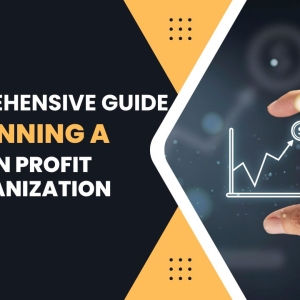Are you feeling stuck in your current career and yearning for a change? Navigating career transitions can be a daunting task, but with the right guidance and strategies, you can successfully find your next path. In this comprehensive guide, we will explore the various aspects of transitioning careers and provide valuable tips to help you make a successful transition. So let's dive in and discover how you can navigate your way to a fulfilling new career!
Assessing Your Skills and Interests
Assessing your skills and interests is emphasized as a crucial step before embarking on a career transition. By evaluating your skills, interests, and values, you can gain valuable insights into yourself. Take the time to reflect on what you genuinely enjoy doing and where your strengths lie. This self-assessment provides a foundation for determining potential career paths that align with your passions and abilities. Understanding your skills and interests can help you make informed decisions and set a clear direction for your career transition.
The focus shifts to the importance of considering what you enjoy doing and what you excel at during the self-assessment process. Identifying your areas of interest can guide you towards career options that will provide fulfillment and satisfaction. Additionally, recognizing your strengths enables you to leverage them in your new career, increasing the likelihood of success and professional growth. By aligning your skills and interests, you can discover opportunities that resonate with your authentic self, leading to a more fulfilling and rewarding career transition.
The self-assessment is highlighted as a means of identifying potential career paths that align with your passions and strengths. This process involves introspection and self-awareness, allowing you to explore different possibilities that suit your unique combination of skills and interests. By understanding what motivates and excites you, you can pursue a career that aligns with your values and brings you joy. Ultimately, assessing your skills and interests provides a solid foundation for embarking on a successful and fulfilling career transition, enabling you to find purpose and satisfaction in your professional life.
Exploring Different Industries
Exploring different industries is emphasized as the next step after gaining a sense of your skills and interests. It's important to conduct thorough research on various industries and sectors to determine which ones align with your desired career path. This research can involve reading industry-specific publications, browsing online resources, and seeking out insights from professionals in the field. By immersing yourself in the knowledge of different industries, you can gain a better understanding of their dynamics, trends, and potential opportunities.
The focus shifts to the practical steps you can take to explore different industries. Reading industry-specific publications and websites can provide valuable information about the latest developments, emerging trends, and key players within each industry. Attending networking events, career fairs, and industry conferences allows you to connect with professionals working in the field and gain firsthand insights. Engaging in informational interviews with industry experts can also provide valuable insights into specific roles, skills required, and potential career paths within different industries.
The importance of gaining insights into potential opportunities is highlighted. By exploring different industries, you can uncover potential career paths that align with your skills and interests. This exploration phase allows you to broaden your perspective and consider a range of options beyond your initial assumptions. By immersing yourself in the world of various industries, conducting research, and networking, you can gather the information needed to make informed decisions about your career transition. This comprehensive exploration ensures that you have a solid understanding of different industries and can make choices that align with your goals and aspirations.
Building a Professional Network
The importance of building a professional network for finding new career opportunities is emphasized. Networking allows you to connect with professionals in your desired industry, expanding your reach and access to valuable resources. Platforms like LinkedIn provide a convenient way to connect with professionals in your field, while industry-specific forums offer opportunities for engaging in meaningful discussions and exchanging insights. Local networking events, such as conferences or meetups, provide face-to-face interactions and a chance to build relationships with individuals who can offer guidance and potentially lead you to job opportunities.
The focus shifts to the actionable steps you can take to build a professional network. Actively engage in conversations with professionals in your desired industry by joining relevant LinkedIn groups, participating in industry-related discussions, and sharing your expertise. Seek out informational interviews with experienced individuals who can provide valuable insights into the industry, specific roles, and potential job leads. By demonstrating genuine interest and curiosity, you can forge meaningful connections that may open doors to new career opportunities.
The importance of building relationships is highlighted. Networking is not just about connecting with others but also about nurturing relationships over time. Engage in mutually beneficial interactions by offering help, sharing knowledge, and supporting others in your network. By cultivating genuine connections and being an active participant in your professional community, you increase your chances of receiving guidance, recommendations, and referrals for potential job opportunities. Building a strong professional network is a long-term investment that can yield significant benefits in your career journey.
Gaining Additional Skills and Education
The importance of gaining additional skills and education to support your desired career path is highlighted. Depending on the field or industry you wish to transition into, it is crucial to identify the gaps in your current skill set. Reflect on the skills and knowledge required for your desired career and assess which areas you need to strengthen. By acknowledging these gaps, you can take proactive steps towards upskilling or reskilling yourself, ensuring you have the necessary competencies to excel in your chosen field.
The focus shifts to exploring opportunities for acquiring additional skills or education. Research and identify relevant courses, workshops, or training programs that can help you bridge the identified gaps in your skill set. Consider both formal and informal learning opportunities, such as online courses, professional development workshops, or industry-specific certifications. Look for resources that provide hands-on training and practical experience to complement your theoretical knowledge, enabling you to gain a well-rounded skill set that is highly valued in your desired career path.
The emphasis is on taking action to enhance your qualifications. Once you have identified the areas where you need to acquire additional skills, take the necessary steps to enroll in relevant courses or programs. Allocate time and resources to focus on your professional development and commit to continuous learning. By gaining additional skills and education, you not only expand your knowledge but also demonstrate your dedication and commitment to your chosen career path. Investing in your own growth and development increases your value in the job market and enhances your chances of success in your desired field.
Crafting an Effective Resume and Cover Letter
The focus is on the importance of crafting an effective resume and cover letter when transitioning to a new career. Tailoring these documents is crucial to showcase your relevant skills and experiences. By customizing your resume and cover letter, you can highlight transferable skills that are applicable to the new role. This customization allows you to present a compelling case for how your past experiences can contribute to the success of your new career.
The emphasis is on emphasizing transferable skills and showcasing the value of your past experiences. Identify the skills and accomplishments from your previous work or educational background that are relevant to the new career path. Highlight these transferable skills in your resume and cover letter to demonstrate how you can bring value to the new role. Use specific examples and quantify your achievements whenever possible to provide tangible evidence of your capabilities.
The mention of a guide titled "Navigating Career Transitions" suggests seeking additional resources to support the crafting of an effective resume and cover letter. This guide can provide valuable insights and tips on how to optimize these documents for a successful career transition. Utilize the guide's recommendations to structure your resume and cover letter effectively, ensuring that they align with the requirements and expectations of your desired industry or role. By investing time and effort into crafting an impressive resume and cover letter, you enhance your chances of standing out and securing opportunities in your new career.
Transitioning careers can be a transformative and rewarding journey. By following the strategies and guidance outlined in the comprehensive guide "Navigating Career Transitions: A Guide to Finding Your Next Path," you'll be well-equipped to navigate the challenges and seize new opportunities. Remember, finding your next path is a process that requires self-reflection, research, networking, and continuous learning. Embrace the adventure, stay determined, and you'll find yourself on the path to a fulfilling and successful new career.











